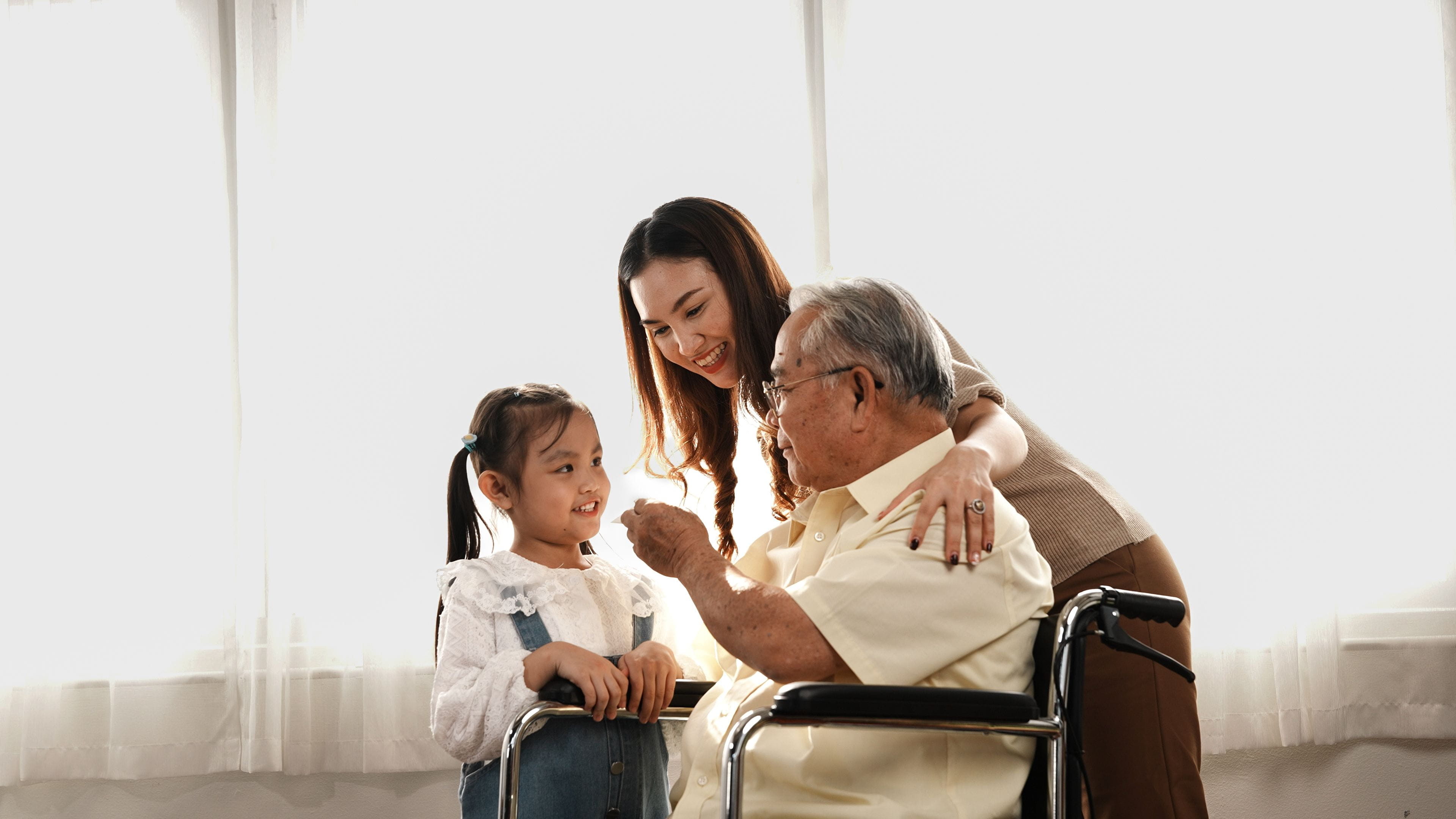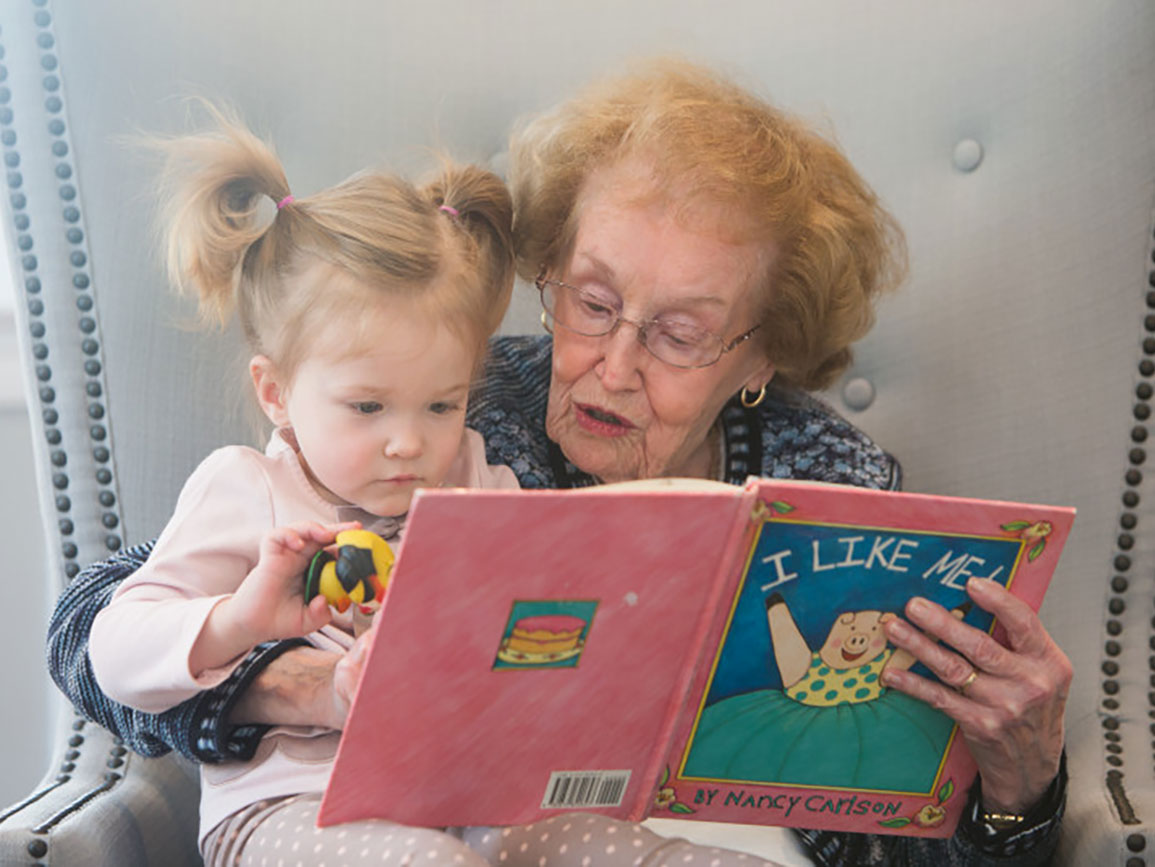You’ve noticed the signs for a while: mom struggling with memory; dad forgetting how to do simple tasks; a family member becoming generally confused. Finally, testing confirms the diagnosis – Alzheimer’s.
What do you do now?
New diagnoses leave most people spinning. “People have a lot of anxiety,” says Camille Koonce, a certified care coach who helps people navigate decisions about caring for an elder relative. “They just want to make sure their parent is taken care of.”
We talked to Camille about some of the first concerns on people’s minds.
Here are 10 questions people often ask, and how to answer them.
1.I really want to care for my family member at home. Is that possible? Yes. There are resources to help your loved one, either in your home or theirs. People often just have no idea what’s available to them.
2. What kind of help? In-home care can provide anywhere from a few hours to 24 hour care. They can do anything that’s non-medical; light housekeeping; laundry; personal care. They can take the senior for a walk, to appointments -- they just can’t administer meds.
3. Where can I look? Start with your local area agency on aging. People at the helm of these organizations have their finger on the pulse of what’s available both locally and outside or your area, and can likely point you to local caregivers and agencies for non-medical in-home (errands, walks, light housekeeping) help. Many also offer ride services for appointments, and onsite events to build community and social connections – for you and your relative.
4. I’m so worried about my loved one wandering. What if they fall – or get lost? Many people are familiar with the devices for people who have fallen and can’t get up. Today there are devices specifically designed for people who may wander. They even have them as shoe inserts for people who might resist wearing something out in the open.
5. What if my family member needs more engagement than I can give by myself at home? Adult day programs are designed for people with cognitive impairment. They’re equipped with caregivers, as well as snacks, meals, and activities. The benefits go beyond hours of operation. So-called sundowning -- late-day mood shifts common among Alzheimer’s patients – can cause agitation and wandering. Research has shown that keeping the brain stimulated and active reduces sundowning, and even the progression of the disease.
6. Do I need paperwork to qualify for help? Likely, yes. To be covered by insurance for in-home physical therapy, for example, you’ll often need doctors’ orders showing a patient is homebound. Working with your doctor can fill in those gaps as well as connect you to relevant social services.
7. What if I find I can’t care for my loved one at home? Depending on a patient’s needs, other options include assisted living with a private apartment plus services (laundry, transportation, etc.); or a stepped-up version with memory care with more support and supervision. All facilities will do an assessment to figure out the best level care.
8. What about skilled nursing facilities? Skilled nursing facilities are every family’s biggest worry. But you shouldn’t feel you’ve failed if a skilled nursing facility turns out to be the best option. A person in a 24-hour facility is there because that’s what they need. People are not thrown in there. There is a process. Research goes into it. And they need doctor’s orders.
9. How do I find care I feel good about? The quality of these facilities can indeed vary. But resist lumping all skilled nursing facilities together as a collective horror story. Each state has regulations for such facilities; and each has an ombudsman program for advocacy. It pays to shop around. But it is possible to find a place you feel good about.
10. How do I deal with paying? Care is expensive. But there are income and asset guidelines that help you use resources effectively. There may be a “spenddown,” for example, meaning you’ll have to pay so much privately before benefits kick in. Income and asset guidelines are different for a couple than an individual. Each state has programs that may provide assistance; however, you’ll have to apply for them. It’s a lot of details requiring a professional to assess. But you’ll do better to maximize resources if you ask rather than guess. The important thing is not to take a dire view. They do not take the house.
Finally, make sure to thoroughly research your company benefits. More employers are adding eldercare to their benefits -- back-up care, and access to care coaches like Camille, for example – meaning you might have help right from the job.
The important thing is to start from the beginning, think about what you need, and start assembling your team of support.
Note: If your parent has Alzheimer’s, encouraging them to maintain their interests and relationships can not only lead to a better quality of life, but it can even reduce the effects of the disease — particularly memory impairment. Here are stimulating activities you can do at home.




